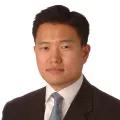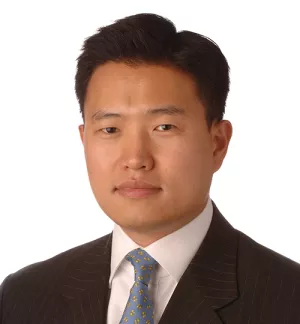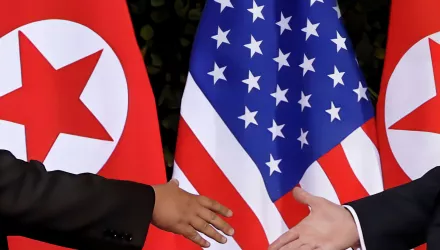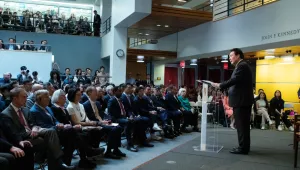On the Issues
On September 28, North Korean state media announced that Kim Jong-il's third son, Kim Jong-eun, was promoted to the rank of four-star general just prior to the opening of the Workers' Party of Korea conference. Kim Jong-eun was later named vice chairman of the Party's Central Military Commission at the conference. These important developments follow the late August meeting between Chinese President Hu Jintao and North Korean leader Kim Jong-il in Changchun, near the Sino-DPRK border, which appears to have cleared the way for this Party conference. After the meeting, both countries' state media reported the leaders' support for the rising generation of the Party — a clear reference to Kim Jong-eun. The significance of the rare Party conference that began on September 28 is that a group of Party officials will be appointed by the delegates to essentially facilitate the leadership succession process.
USIP's John Park outlines the development of China's North Korea policy, and examines the implications of deepening Communist Party of China (CPC)–Workers' Party of Korea (WPK) ties for this succession process and the U.S.'s North Korea policy.
- What is Xiaokang and how does it factor into China's North Korea policy?
- Why is fostering sustainable stability in Northeast Asia such a policy priority for China?
- How is China using economic engagement with North Korea to further its national interests?
- What are the implications of China's "Two-Party Approach" in dealing with North Korea for the leadership succession process and the U.S.' North Korea policy?
Continue reading: http://www.usip.org/resources/the-issues-north-korea-s-leadership-succession-the-china-factor-0
Park, John. “North Korea's Leadership Succession: The China Factor.” United States Institute of Peace, September 28, 2010
The full text of this publication is available via United States Institute of Peace.




